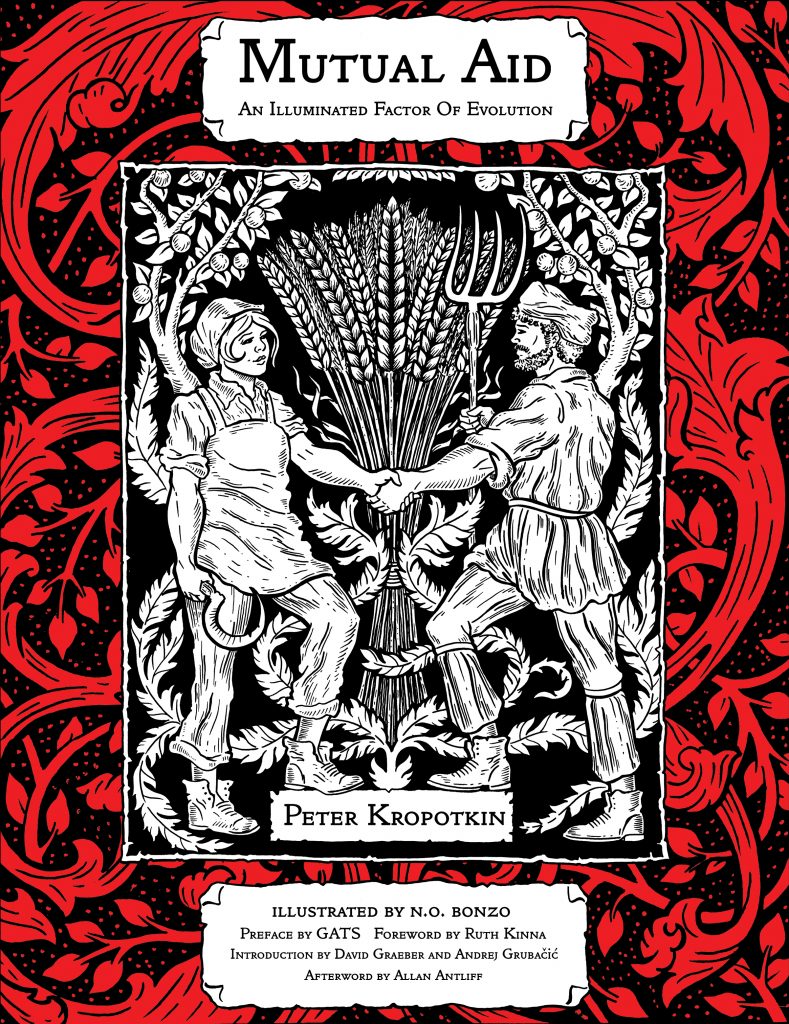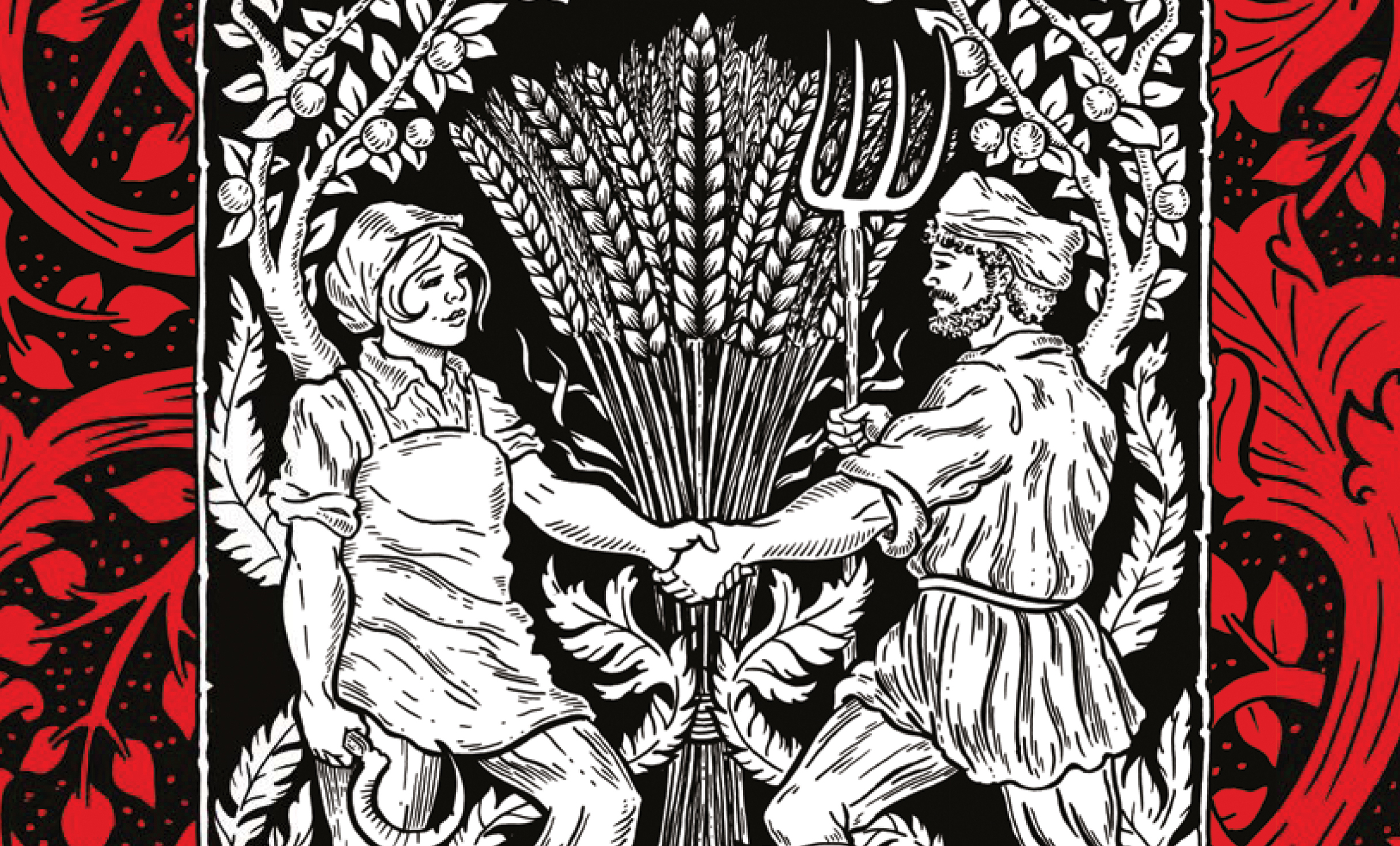By Paul Buhle
Comics Grinder
November 11th, 2021
This large and beautiful book is so much like a comic that it cannot be described effectively in any other way. “Illustrated text” would not convey, especially for the younger readers of graphic novels, what has been accomplished here, and especially because 21st century readers “see” the pages differently from their predecessors and perhaps closer to ways that children have always “seen” favorite books—or at least the ways this reviewer saw them, literally learning to read by reading comics.
That said, we come immediately to David Graeber himself as a 21st century comet, rising into the sky and sinking again with his sudden, untimely death in 2021. His final text, an extended exploration of archeological history seeking the presence of largely peaceful, pre-state societies, has not convinced all readers by a long shot, but made his political points effectively. Class society seems to have been a fairly recent experience for Homo Sapiens, and its supremacy does not seem to have come from superior production of needed goods or any variant, such as organized agriculture. Yugoslavian-born Andrj Grabacic, a past collaborator with Staughton Lynd, obviously brings his own anarchistic fashion of political analysis into the mix.

Kropotkin, the Russian aristocrat, had a lot in common with other 19th century reformers including Marx: society, they believed, could be transformed by better, more scientific information and application. We had not yet entered the 20th century, where war became the decisive factor “for the West” that it had already been for the colonized world since the 17th century, at least. The choices for human society appeared to be more open and more peaceful until the First World War smashed so many illusions.
Mutual Aid, with its splendid subtitle, argues that society engages in communal relations at all times, making “capitalism” and “nationalism” the intruders. Marx saw the new society within the old in the sphere of socialized labor, no matter how brutal and alienated. Kropotkin looked outward.
The charm of this reprint, with splendid art, begins for today with the prince’s insistence upon “mutual aid among animals,” a powerful argument for its time, but more likely to be recognized now. Kropotkin insists, for instance, that a greedy sparrow seeking to monopolize nesting areas will be stopped by the flock. Contrary examples can certainly be found, but from scientific discoveries of “mother trees” to closer examination of interspecies collaboration, it seems science may be catching up with the prince who famously resigned his title.
Of course, Kropotkin’s main subject is human society, and if his arguments are somewhat familiar, the drawings of Bonzo are startling. I do not even recognize the name of this postmodern, feminist artisan, who lives in Portland and helped to create the Antifascist Coloring Book. Whatever the case, this is the closest to a reanimation of Williams Morris’s visions that I have seen in recent times. “Swipes,” in old comic book language, are taken freely from illustrations six generations past, but updated charmingly. We discover for instance with “harm reduction,” widespread enough to become a social movement in itself, that modern-day cooperators are re-learning how to help others through easing their bouts of addiction.
The chapter called “Mutual Aid in the Medieval City” is bound to remain a personal favorite of mine, because here Kropotkin comes so close to Morris, drawing upon similar sources, such as the histories of the guilds. We see the words of the text, and around them the images of working men and women who believed deeply in what they did. We can see cooperation, in other words, in a new light.
Quite a book, quite a revival of Kropotkin.
N.O. Bonzo is an anarchist illustrator, printmaker, and muralist based out of Portland, OR. They are the creator of Off with Their Heads: An Antifascist Coloring Book







